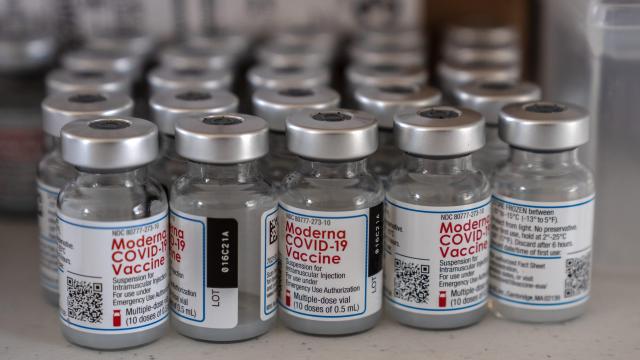Vaccines based on mRNA, first used for covid-19, may soon protect people from the influenza virus as well. This week, Moderna announced the start of a phase I/II trial testing out its vaccine candidate for the seasonal flu. Ultimately, the company hopes to develop a combination vaccine that can offer protection against the flu, covid-19, and other common respiratory viruses at the same time.
According to the Massachusetts-based company, the first volunteers were dosed Wednesday with the experimental flu vaccine, dubbed mRNA-1010. Like other seasonal flu shots, it’s intended to prevent illness from four types of flu expected to circulate widely during the season, including two subtypes of influenza A and two lineages of influenza B. The trial is planned to involve 180 participants in a randomised, single-blinded study where volunteers will get varying doses of the vaccine.
Moderna, now known for developing one of the two mRNA covid-19 vaccines widely available in the U.S., wasn’t the first company to forge ahead with a mRNA candidate for the flu. In late June, the companies Sanofi and Translate Bio became the first to jointly start their own phase I trial, with plans to have early results by the end of 2021. Pfizer, the co-developers of the other mRNA covid-19 vaccine, is expected to enter the ring soon as well.
Both Moderna and Pfizer’s covid-19 vaccines have exceeded expectations, providing upwards of 90% protection against illness from the viral disease and even more protection from serious illness and death. The shots are the first mRNA vaccines to successfully reach the public, though the technology behind them has been in the works for decades. And it’s likely only a formality before countries like the U.S. approve them for covid-19 (all covid-19 vaccines in the U.S. have been released to the public on an emergency-use basis).
These vaccines have proven more effective against covid-19 than other shots (some, like Novavax’s version and Cuba’s Abdala, do seem to come close). So the hope is that the mRNA platform will also improve on the decent but not great performance of existing flu vaccines, which range in effectiveness between 40% to 60% in any given year. This improvement might come from a boost in the immune response to flu induced by mRNA vaccines, relative to other shots, but it could also come from their greater adaptability.
Scientists do their best to predict the upcoming flu season’s circulating strains months in advance. Typically, the predicted viruses are grown in the lab or inside chicken eggs and are used as the basis of that year’s vaccine (the virus included in the inoculation is either dead or weakened but live). But wild flu strains can mutate quickly enough to create a mismatch between the vaccine and the circulating virus by the time the shots reach the public, while the egg method can actually force the grown virus to mutate differently than wild flu.
mRNA vaccines, on the other hand, work by encoding the instructions for creating a piece of the virus in a mRNA package that’s introduced to the body’s cells, which then allows these cells to produce the piece themselves, triggering an immune response. The process to create these instructions can take less time than other traditional vaccines, allowing for less lag between predicting the strains, producing the shots, and getting them to the public. Ideally, they can also be updated faster if needed (Moderna and Pfizer have both developed and tested booster shots for new variants of covid-19, though they don’t seem to be needed yet).
The tantalising potential of mRNA vaccines for the flu will have to be confirmed in clinical trials before we can be certain of anything. But while Moderna may have not been the first out of the gate, its eventual goals are certainly lofty. The company hopes to someday create a combination mRNA vaccine for the flu, covid-19, and two other common and sometimes serious respiratory diseases, caused by the respiratory syncytial virus (RSV) and human metapneumovirus.
“Our vision is to develop an mRNA combination vaccine so that people can get one shot each fall for high efficacy protection against the most problematic respiratory viruses,” Moderna CEO Stéphane Bancel said in the company’s announcement.
There are more potential uses being studied as well. Last month, scientists reported early success in mice using a mRNA vaccine for measles, one of the deadliest diseases in the world.
